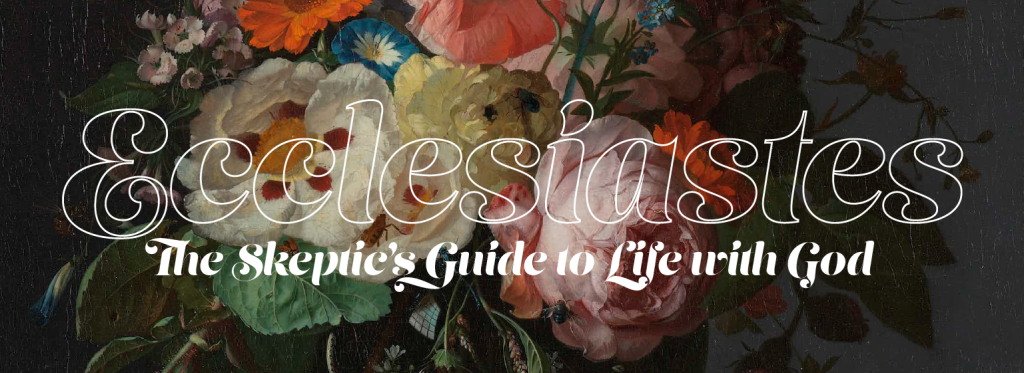
This past weekend at Eastbrook, we concluded our preaching series “The Skeptic’s Guide to Life with God: Ecclesiastes,” as I preached a message entitled “What is the Most Important Thing in Life?” from Ecclesiastes 12. I also explored aspects of stages of faith and the work of Paul Riceour on the second naivete.
You can find the message outline and video below. You can access the entire series here. Join us for weekend worship in-person or remotely via Eastbrook at Home.
“Remember your Creator
in the days of your youth,
before the days of trouble come.”
(Ecclesiastes 12:1)
Stages of Life and Stages of Faith (Ecclesiastes 12:1-7)
Engaging this passage on various levels: literal, metaphorical, allegorical
The concept of stages of faith
A Return to a Theme (Ecclesiastes 12:8)
The meaning of hebel:
- literally: “vapor” or “breath”
- figuratively: “meaningless,” “empty,” “fleeting,” or “vanity”
The beginning and the end:
- Starting with meaningless means one thing
- Ending with meaningless means another
- Second naivete, deconstruction, disentangling, and moving forward with faith
What Matters Most (Ecclesiastes 12:9-14)
The editorial reflections on Qoholet
The editorial summary of Qoholet
A creed for reapproaching life amidst skepticism (12:13-14)
Dig Deeper
This week dig deeper in one or more of the following ways:
- Memorize Ecclesiastes 12:13
- This final part of Ecclesiastes summarizes aspects of the entire book, particularly in verses 13-14. How would you summarize life with God in 1-3 sentences? Consider writing it down and sharing it with a friend.
- Consider reading one of the following books to continue wrestling with hard questions or growth through the stages of faith:
- Greg Boyd and Edward Boyd, Letters from a Skeptic
- J. Robert Clinton, The Making of a Leader
- Timothy Keller, Making Sense of God: An Invitation to the Skeptical
- Francis Spufford, Unapologetic: Why, Despite Everything, Christianity Can Still Make Surprising Emotional Sense
- A. J. Swoboda, After Doubt: How to Question Your Faith without Losing It
